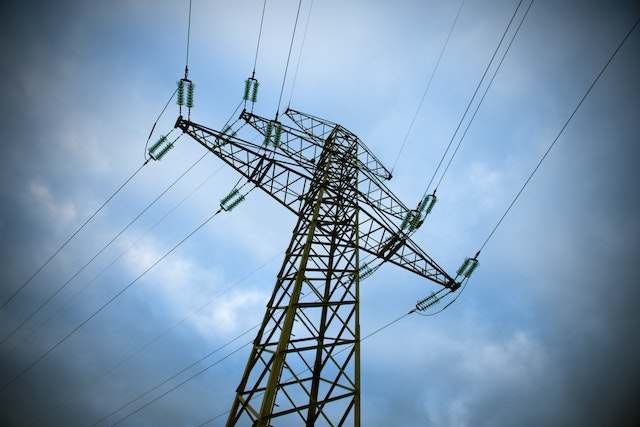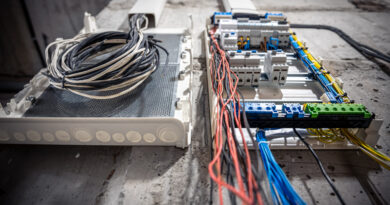Busting the Myths: Unveiling the Truth About Electrical Testing in Bhiwadi
Introduction
Bhiwadi, a bustling industrial city in India, is no stranger to such myths surrounding electrical testing practices. However, we, as industry experts, are here to debunk these misconceptions and reveal the truth behind electrical testing in Bhiwadi.
The Importance of Electrical Testing
Electrical testing serves as the cornerstone of a robust and secure electrical infrastructure. It involves a systematic evaluation of electrical systems, components, and equipment to ensure their compliance with safety regulations and standards. Contrary to popular belief, electrical testing is not just a mere formality; it is a crucial step in guaranteeing the safety of individuals, properties, and businesses in Bhiwadi.
Myth 1: “Electrical Testing is Unnecessary Expenses”
One prevalent myth surrounding electrical testing is that it is an unnecessary expenditure. However, this notion couldn’t be further from the truth. Investing in regular electrical testing not only ensures compliance with legal requirements but also mitigates the risk of electrical failures, which can lead to costly repairs, property damage, and even life-threatening incidents. By identifying potential issues early on, electrical testing helps prevent expensive breakdowns and extends the lifespan of electrical systems.
Myth 2: “Electrical Testing is a Time-Consuming Process”
Another myth that often circulates is that electrical testing is a time-consuming process that disrupts daily operations. However, with advancements in technology and streamlined testing procedures, this misconception holds no ground. Skilled professionals equipped with state-of-the-art testing equipment can efficiently evaluate electrical systems without causing significant disruptions. Moreover, the time invested in thorough electrical testing pales in comparison to the potential downtime and loss caused by electrical failures.
Myth 3: “Electrical Testing is Only for Large Enterprises”
Many small and medium-sized businesses in Bhiwadi fall victim to the belief that electrical testing is only relevant for large enterprises. However, electrical safety knows no size boundaries. Whether you operate a small shop, an office space, or a manufacturing unit, electrical testing is equally crucial for all. Neglecting proper electrical testing can have severe consequences, regardless of the scale of your operations.
The Truth About Electrical Testing in Bhiwadi
Now that we have dispelled these myths, let us delve into the truth about electrical testing in Bhiwadi. When it comes to ensuring the safety, reliability, and compliance of electrical systems, engaging certified professionals is of utmost importance. These experts possess in-depth knowledge, experience, and the necessary equipment to conduct comprehensive electrical testing.
Electrical testing in Bhiwadi encompasses a wide range of assessments, including:
1. Visual Inspection
During a visual inspection, professionals thoroughly examine electrical components, wiring, and connections for signs of wear, damage, or non-compliance. This initial assessment helps identify any obvious issues that require further investigation.
2. Electrical Load Analysis
An electrical load analysis involves evaluating the power consumption of various electrical devices and equipment to ensure that the electrical system can handle the load adequately. This assessment helps prevent overload situations that can lead to overheating, circuit failures, and potential hazards.
3. Insulation Resistance Testing
Insulation resistance testing measures the integrity of insulation materials used in electrical systems. By assessing the resistance to electrical leakage, professionals can identify potential breakdown points and take corrective measures to prevent electrical faults and accidents.
4. Earth Resistance Testing
Earth resistance testing is conducted to evaluate the effectiveness of grounding systems. Proper grounding is essential for dissipating electrical surges, minimizing the risk of electric shock, and ensuring the stability of the electrical infrastructure.
5. Circuit Breaker Testing
Circuit breaker testing involves assessing the functionality and performance of circuit breakers. Professionals test the trip time, current ratings, and overall reliability of these crucial protective devices to ensure their optimal operation in case of electrical faults.
Conclusion
In conclusion, the myths surrounding electrical testing in Bhiwadi have been unveiled, and the truth stands resolute. Investing in regular electrical testing is not an unnecessary expense but rather a prudent measure to safeguard lives, properties, and businesses. Regardless of the size of your enterprise, electrical testing is indispensable for maintaining a secure and reliable electrical infrastructure.




